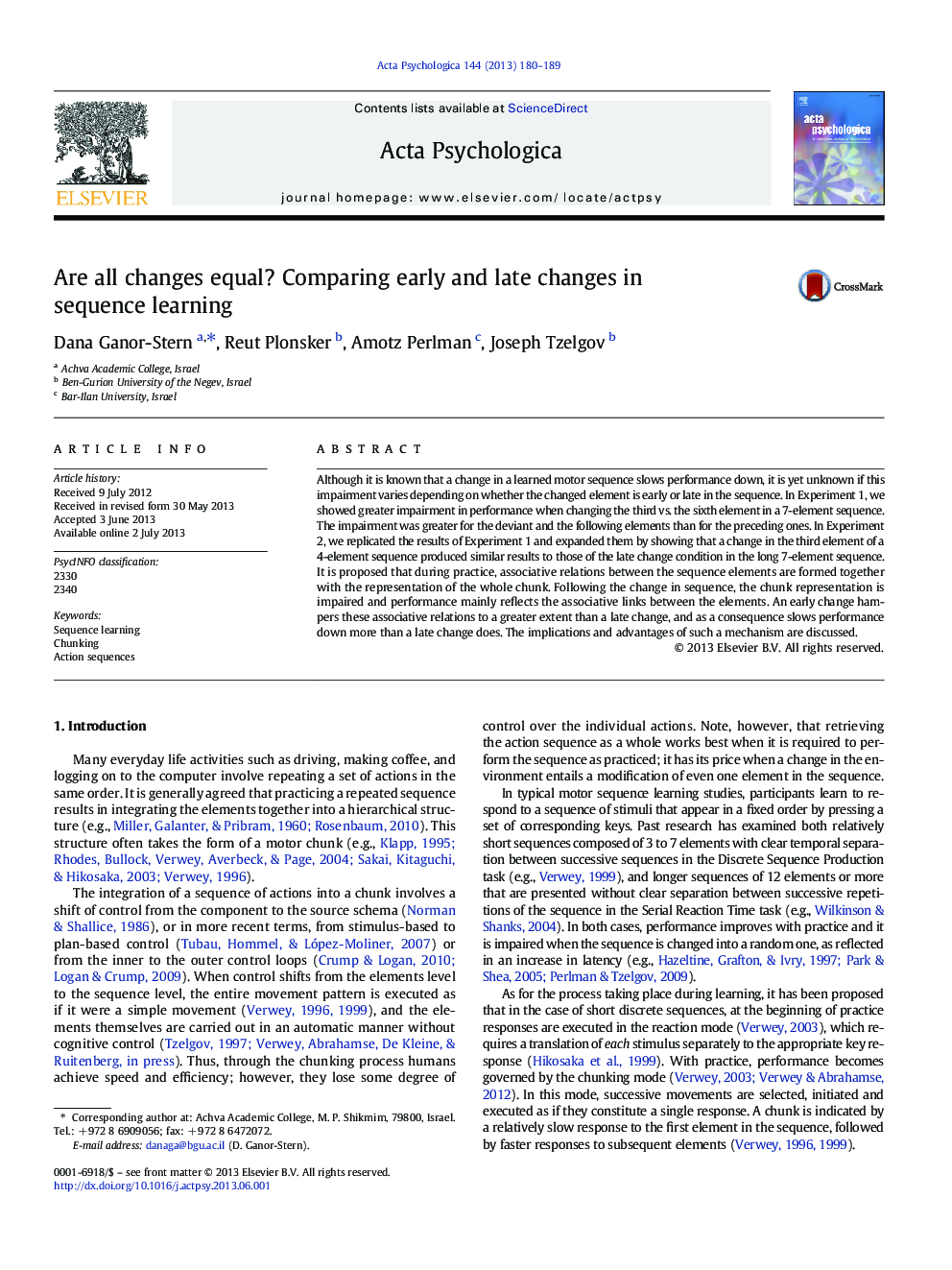| Article ID | Journal | Published Year | Pages | File Type |
|---|---|---|---|---|
| 919914 | Acta Psychologica | 2013 | 10 Pages |
•Participants practiced a 7-element motor sequence and one element was changed.•Performance was impaired more when the changed element was early in the sequence.•This was reflected in responses for the changed element and the following ones.•The change presumably caused participants to switch to the associative mode.
Although it is known that a change in a learned motor sequence slows performance down, it is yet unknown if this impairment varies depending on whether the changed element is early or late in the sequence. In Experiment 1, we showed greater impairment in performance when changing the third vs. the sixth element in a 7-element sequence. The impairment was greater for the deviant and the following elements than for the preceding ones. In Experiment 2, we replicated the results of Experiment 1 and expanded them by showing that a change in the third element of a 4-element sequence produced similar results to those of the late change condition in the long 7-element sequence.It is proposed that during practice, associative relations between the sequence elements are formed together with the representation of the whole chunk. Following the change in sequence, the chunk representation is impaired and performance mainly reflects the associative links between the elements. An early change hampers these associative relations to a greater extent than a late change, and as a consequence slows performance down more than a late change does. The implications and advantages of such a mechanism are discussed.
